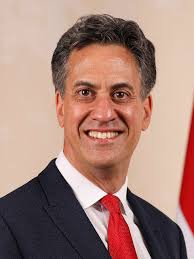Understanding Ed Miliband’s Role in Modern Politics

Introduction
Ed Miliband, former leader of the UK Labour Party, remains a significant figure in British politics. His influence and commentary continue to shape the political landscape, making him a relevant topic of discussion. As the Labour Party faces new challenges and directions in its policies and leadership, understanding Miliband’s contributions and current standing is essential for anyone interested in UK politics.
Political Career Overview
Ed Miliband served as the leader of the Labour Party from 2010 to 2015, during which he attempted to steer the party towards a moderate stance while addressing key issues such as inequality and economic recovery. Although he faced internal party criticism and ultimately lost the 2015 general election, Miliband’s policies and leadership style left a lasting impact. After stepping down, he remained an active voice in politics, advocating for progressive ideals and social justice.
Recent Developments
In recent months, Miliband has been vocal about various socio-economic issues, particularly the cost-of-living crisis exacerbated by the ongoing effects of inflation and global economic instability. He has been particularly critical of the current Conservative government’s handling of energy prices and welfare, using platforms like social media to connect with younger voters and promote Labour’s agenda.
As the Labour Party prepares for the next general election, Miliband has also resurfaced as a key strategist, leveraging his experience and knowledge to help shape party policies and public opinion. His roles in committees focusing on climate change and food security align with the broader goals of the Labour Party under the leadership of Keir Starmer, especially as environmental issues become more pressing on the political agenda.
Significance for the Future
Ed Miliband’s ongoing involvement in politics indicates a potential comeback both for himself and the ideologies he represents. His emphasis on social equity and sustainability resonates with many voters concerned about economic disparities and climate action. Moreover, as upcoming elections approach, analysts suggest that Miliband’s experience and voice may guide the Labour Party towards a more unified stance, appealing to a broader demographic, which is essential for electoral success.
Conclusion
In conclusion, Ed Miliband is a crucial figure to watch in the context of UK politics. His perspectives on current issues and active engagement within the Labour Party may significantly influence the party’s trajectory and the overall political discourse in the coming years. By addressing critical challenges such as the cost-of-living crisis and climate change, Miliband stands poised to play an instrumental role in shaping the future of British governance and Labour’s strategy.








